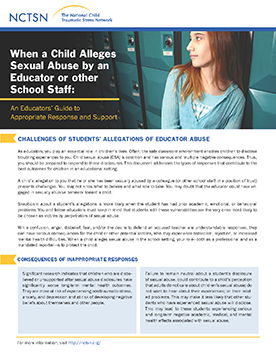
When a Child Alleges Sexual Abuse by an Educator or Other School Staff: An Educator’s Guide to...
Provides educators and school staff information on the challenges that occur when there is an allegation of educator abuse.
The following resources on child trauma were developed by the NCTSN. To find a specific topic or resource, enter keywords in the search box, or filter by resource type, trauma type, language, or audience.

Provides educators and school staff information on the challenges that occur when there is an allegation of educator abuse.
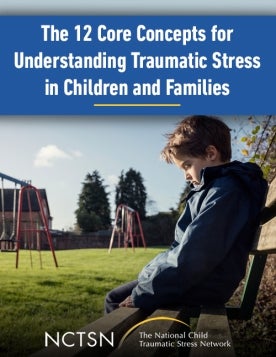
Provides information about how traumatic events often generate secondary adversities such as family separations, financial hardship, relocations to a new residence and school, social stigma, ongoing treatment for injuries, physical rehabilitation, and legal proceedings.
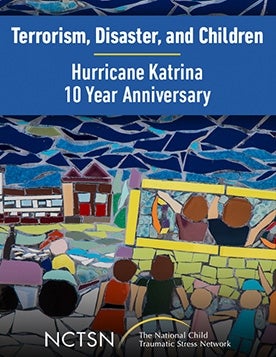
Discusses Project Fleur-de-lis (PFDL), an intermediate and long-term school-based mental health response to Hurricane Katrina.
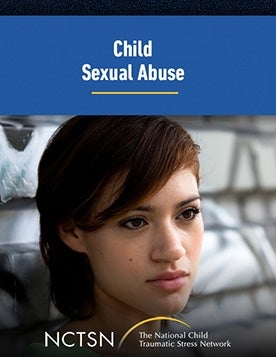
Discusses sexual assault that occurs within the context of ongoing relationships and those that occur in a one-time interaction (e.g., at a party, among casual acquaintances, friends who are not in an ongoing intimate/romantic relationship).

Illustrates how a parent can provide solace and support to a child after the death of a loved one.
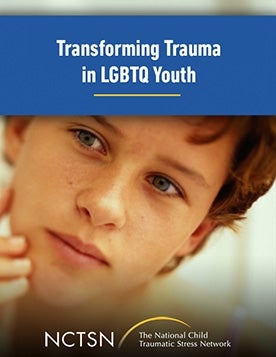
Offers concrete strategies and recommendations for providers working with LGBTQ youth who have experienced trauma. This webinar series discusses how to increase access to services, create a safe environment for care, and work with families and schools.
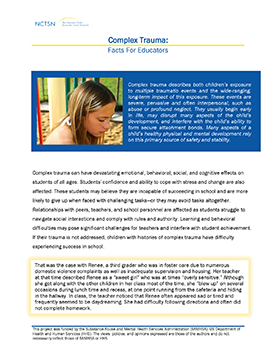
Helps educators and school staff recognize the signs and symptoms of complex trauma and offers recommendations on how to help students heal.
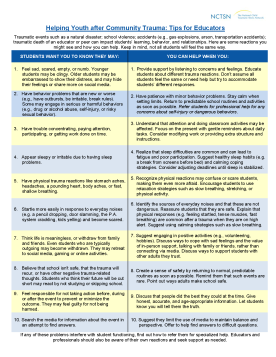
Lists common reactions educators might see in the students with whom they work and suggestions on how they may help after community trauma.
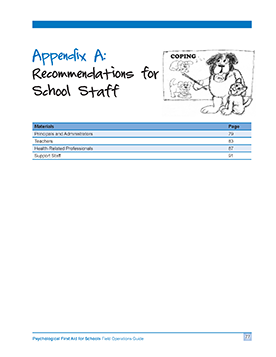
Is the first appendix for the Psychological First Aid Field for Schools (PFA-S) Operations Guide.
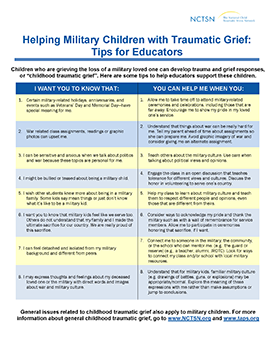
Offers information on military children who are grieving the loss of a loved one. This tip sheet describes how military children dealing with trauma and grief responses may be feeling and what educators and school staff can do to help.
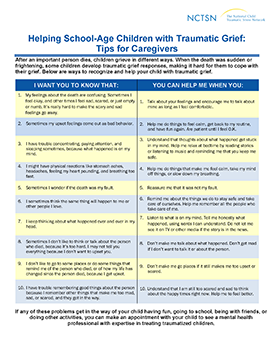
Describes how school-age children may feel when struggling with the death of someone close and offers tips on what caregivers can do to help.
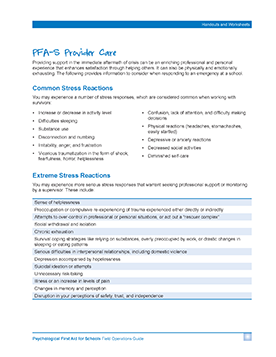
Is a handout from Psychological First Aid for Schools (PFA-S) Field Operations Guide. This handouts includes information for providers on stress reactions they may experience when providing support in the immediate aftermath of a crisis and ideas for self-care.